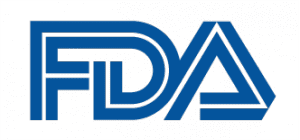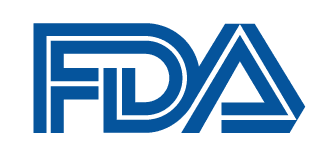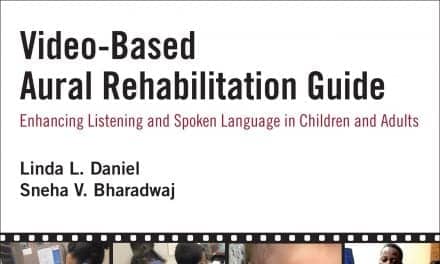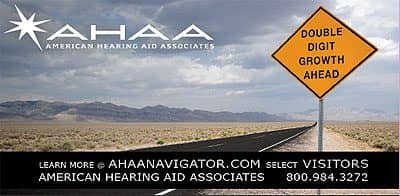
There has been a proliferation of hearing devices marketed as “OTC hearing aids” since Congress passed and President Trump signed into law the FDA Reauthorization Act of 2017 (FDARA) in which “Congress enacted a definition, outlined certain requirements, and set forth a process for establishing a category” of OTC hearing aids. In particular, some start-up and personal sound amplification (PSAP) manufacturers have marketed OTC hearing aids. However, as Maisel pointed out in his letter, any applicable technical and quality standards, as well as marketing and labeling requirements, have not yet been established for the OTC hearing aids by the Agency. In fact, there has been a lot of debate regarding technical requirements and the barriers that the new device category is intended to address (see “NASEM Committee Looks at Regulations for OTC Hearing Aids” and “HIA Comments on FTC ‘Now Hear This’ Workshop and OTC Hearing Aids”).
The FDA has until August 18, 2020 to propose new regulations that will define and regulate the new OTC hearing aid device category, and this will be followed by a public comment period which will almost certainly present the various desires and concerns of consumers, professionals, and industry. The Agency will then have up to 180 days after the close of the comment period to publish the new regulations. Under the cited FDARA section, a manufacturer cannot legally claim a hearing aid device to be an OTC product in marketing until a new categorization is finalized.
This “reflects a careful balance between consumer access to new technologies and consumer protections to assure the safety and effectiveness of OTC hearing aids,” Maisel stated.
CDRH points out that the FDA has pushed for striking the right balance between access and hearing aid safety. On December 7, 2016, The FDA’s Eric Mann, MD, PhD, announced the Agency was eliminating the so-called “physician waiver” system which required consumers first to seek a physician for a medical evaluation or sign a waiver prior to obtaining a hearing aid (certain state law requirements may still apply).
The letter by Dr Maisel emphasizes the fact that marketing of hearing devices cannot use the phrase “OTC hearing aids” in their marketing since the FDA definition of this hearing aid class—which would probably include severity of loss and other important safety, quality, and labeling requirements—has not yet been established.






Not sure my post went through. Here it is again.
Hearing Aid Act was signed by President on August 18, 2017. It allows hearing aids to be marketed to consumers OTC. Going on two years later, FDA has issued no regulations or guidelines for manufacturers or consumers. Lack of FDA action is propping up the global hearing aid cartel, made up of 4 or 5 companies with a monopoly of 97% market share of hearing aids worldwide. The companies that make up this monopoly spend anywhere from a few dollars to $150 dollars to manufacture a single hearing aid. That same exact hearing aid costs the consumer anywhere from $1000 to $10,000.
This business model was developed and is currently supported by FDA regulations that continue to preclude small companies from manufacturing and selling hearing aids to consumers over the counter. Worse than that, FDA lack of action in creating regulations for OTC hearing aids has spawned a large and quickly growing ‘grey area’ in marketing and sales of hearing aids and hearing “amplifiers” online and in stores. The technology to completely manufacture and market self fitting hearing aids that would provide the same exact performance to consumers at a tenth of the price already exists off the shelf. There is no R&D required. Microelectronics, bluetooth communications and smartphone/computer/tablet applications are all mature and readily available. Small companies are chomping at the bit to package these technologies into small, easy to use, affordable devices for consumers. As always, the big hearing aid companies continue to reap huge profits from the monopoly they operate and consumers pay huge costs for the devices they buy, all because the FDA, by keeping old regulations in place and not creating new ones, ensure that the status quo is maintained.
FDA. The world is waiting for you. 50 million people, mainly seniors in the USA are paying huge $$$ that go to the providers and manufactures, because we are waiting on YOU.
I just had hearing aids fail that I’ve had for 5 years and now I either take a chance and buy an OTC product with no known specifications and a lot of marketing hype – or – spend minimum $2,500 for audiologist + new hearing aids in the “system” that the FDA has created. Just thought I would rely some reality to you from the front line. I do not expect any answer from FDA.
Well…I’m not sure where to begin here. First, the FDA has a system designed to protect the public while encouraging innovation in medical devices. When major changes are proposed or mandated by Congress, there is a process in place that the FDA needs to follow. The FDA will be coming out with proposed regulations for the new OTC hearing aid classification no later than August 2020, and one would expect the new category of OTC hearing aids to be fully implemented by mid-2021, if not sooner.
I have been to the headquarters and most manufacturing facilities of every “Big 5/6” global hearing aid manufacturer, and I can assure you they all have different hearing aids and in many cases, very different technologies for processing sound, streaming sound/data, and addressing the needs of people with hearing loss via amplification. Frankly, the idea of a cartel is somewhat humorous to me, because I am often at the nexus of competitive forces in the hearing industry; although they do play nice in public, they are fiercely competitive companies. Most of them are public companies, and ALL are doing whatever they can to gain market share over one another. It’s true there are far fewer smaller hearing aid manufacturers than there once were, but this shouldn’t be a surprise when one views the technology and required R&D investment for truly competing in this market.
Our most recent survey shows that professionally fit hearing aids cost, on average, anywhere from about $800 to $3000 each. There are many personal sound amplification (PSAP) products online–products that will almost certainly become “OTC hearing aids” in the future. From a practical standpoint, these are largely unregulated by the FDA and (in general) range from about $50 to $1000 each. Because they are unregulated, some are pretty good, some are downright garbage. They are not dispensed or professionally fitted, and I would contend (and research confirms) that the technology level is not nearly as important as the programming, fitting, and counseling. It depends how the FDA chooses to formulate its quality controls, good manufacturing practices, etc, but if “OTC hearing aids” go largely unregulated (or lightly regulated), I’m skeptical much will change with the new classification. In other words, it can be argued that we already HAVE OTC hearing aids, they’re just called another name. (I acknowledge, there are some arguments against this, but that’s another discussion.)
Finally, I’m sorry your hearing aids didn’t last past 5 years. In my opinion, they should. Most do, and I think a reasonable “service life” expectation is around 7 years. But, as with any electronic product that would sit on your head (or inside a sometimes moist ear), they’re eventually going to break. I have a slight hearing loss and have been occasionally experimenting with a $350 PSAP for selected listening environments, mostly TV listening. It had excellent performance for what I was using it for, but lasted only 8 months. I was disappointed and had no recourse. If I had obtained it from a dispensing professional–who, incidentally, pays for the same equipment, education, rent/mortgage, support personnel, etc, that any private-practice dentist or medical professional does)–they almost certainly would have been able to repair the aid if they recommended it, send it back for replacement, or work out some kind of agreeable solution.
The bottom line is there are already quite a few options for obtaining amplification devices, ranging from professional care, to big box retail (eg, Costco and SAM’s Clubs), to online. As with most things, in general, you’re going to get what you pay for. My hope is that the upcoming OTC classification will stimulate even greater innovation, competition, and variety in amplification choices–particularly in what some call the “economy class” hearing aid market.
Cannot get in touch. Aids do not work. Emails not answered. I need to return and no one answers phone.
Thanks for the discussion. I am just entering the “need hearing assistance” market – 66y.o. – and have seen specialists and have a concept of my hearing deficits. I am seeking the cost effective solution. As a teacher with 30-40 students in class, this is where I see my hearing issue trip me up. I was interested in the Nano CIC, although I’ll probably ck out Costco. We should all be watching.
The main issue at hand is undetected diseases of the inner/middle ear or more serious TREATABLE anomalies. Also, word recognition decreases when the hearing loss is improperly treated in most cases, which means even with amplification the word recognition is too far gone and all we can provide is noise zero clarity. People need FREQUENCY SPECIFIC amplification for effective processing and preservation of speech discrimination.
I can understand the ” Hair on fire” But I think the eyeglass people survived the same impact when Reading glasses were made OTC.
I think the new law will make Hearing aids more socially acceptable. The OTC will be introductory to “Real Hearing Aids.”
Let’s put level of technology aside for just a moment. My main concern regarding “OTC hearing devices is safety”. There is a real danger to consumer who may get to much amplification. This could cause real damage to an already compromised hearing system. The FDA job is to ensure that the products we purchase are safe. That is what is most important.
As far as technology levels go, yes I agree that smarter technology provides better results. But everyone doesn’t benefit from many of the bells and whistles as someone posted. Getting to know your client and their listening needs is the only way to guide them to the best technology for them.
Someone might want to tell that to Nano Hearing Aids. They are marketing themselves as the “#1 OTC Hearing Aid of 2018”.
yea like a fool i ordered them now i want to return them and their giving me the run around can’t even put the return address on their website
I am glad to see the FDA stepping in to control the marketing aspect of these over the counter hearing aids.
It is not about the cost. It is about being informed so that the consumer can make a good choice concerning their hearing.
“The main requirement for hearing aids is to improve brain performance with complexity thats available only in top of the line hearing aids.”
May I respectfully submit that line or level of the chosen hearing instruments have little to do with the results : that is, the need of being specifically fit to the patient & proper rehab is what drives the best outcomes.
What a bunch of malarkey. The main purpose of these so called top line hearing aids is to separate as much money as possible from the hearing impaired consumer. Don’t kid yourself. The manufacturers and the dispensers want it that way. The last thing the traditional distribution system wants is market penetration.
The entire U.S. hearing aid market barely sells 2.8 million hearing aids annually. 80% of hearing aids sold are part of a two unit transaction. 60% of hearings aids sold each year are sold to people who previously owned hearing aids. Remove the more than 600,000 thousands devices the Veterans Administration purchases, and the reality becomes even clearer.
Excessive high cost is the number one reason most people with hearing loss choose to do nothing about the problem. Most people with clinical hearing loss, especially those with mild to moderate issues, only need a little bit a help a little bit at a time. They shouldn’t be forced into a system that charges them $8000 for what is essentially a personal sound system with a few overpriced bells and whistles.
I agree with Joseph. The current system in getting hearing assistance is horrible. I would like the FDA to enforce accuracy and transparency in the information we “patients” get regarding hearing aids, but NOT NOT restrict our access to reasonably priced hearing assist devices. I think the big hearing aid companies need competition. Their current product offerings are pitifully behind the current electronic technology. Their current customers are older people not able to insist on a decent product for the outrageous price they have to pay.
Bringing the FDA into this ridiculous OTC plan will generate corruption. The main requirement for hearing aids is to improve brain performance with complexity thats available only in top of the line hearing aids. I emphasize that the first ever hearing aids to be worn should be of a technology that helps in neurogenesis and forms the new baseline for the patients entire future.
Jay Muhury.
OTC aids sound good in theory to the consumer. However, the “cost” of a quality hearing aid isn’t just the Audiologist or Hearing Instrument Specialist. Good quality hearing aids cost more because they are state of the art technology, that allow excellent sound quality, noise suppressors and a whole host of other benefits that patients need. Furthermore, hearing aids need service, proper programming to insure the device is working effectively and to insure the patient is hearing well so that they can enjoy all of their listening environments. Cheap OTC sound amplifiers will not hold a patients personal prescription and the patient will not receive the needed follow up care. Unfortunately, these amplifiers can and will give consumers a bad taste for hearing aids due to poor sound quality and a host of other issues that will develop. This will leave many people feeling that this is just the way hearing aids sound and this is NOT the case. Many of those people will not seek proper help as a result. This troubles me greatly!
Of course the higher end hearing aids are going to give people better results, but in the real world, many people with hearing loss simply cannot afford thousands of dollars for traditional hearing aids. These people should not be left with no options and the help OTC aids can and will provide is better than nothing. Apps are being developed that will allow users to program the aids according to their needs and to help them get the best experience possible from the device. As you try to create fear that many people will become disillusioned and give up on seeking help is just that, a fear tactic. IT is just NOT true and has been proven to be untrue in other parts of the world where OTC aids are already available. We do not need more regulations. We need freedom to use the brain God gave us to make choices for ourselves.
Hi Bonnie. It’s no one’s intention to cause fear about trying amplification; audibility matters and amplification devices are generally the key to better listening if you have a hearing loss. There are currently some really good options–along with some real pieces of junk–on the market relative to what are now collectively known as personal sound amplification products (PSAPs). We’re very hopeful that the upcoming OTC class of hearing devices from FDA opens up new, safe, effective options for people with hearing loss. However–at this point–FDA has not defined what an “OTC hearing device” IS and, from a professional and industry standpoint (Hearing Review is a trade magazine intended for both audiences), that makes a big difference. If companies start marketing an “OTC hearing aid” today that ends up negatively impacting consumers’ perceptions (or worse, physically harming them), from an industry standpoint, OTCs may become negatively associated with a lot of the junk that is presently out there. In this light, we think it’s a good thing that FDA is keeping an eye on the market and the use of the words “OTC hearing aid”. But I agree with you: use your god-given brain if you wish to try a PSAP. And, hopefully, the OTC category of hearing devices will make it easier to make hearing-related choices less dicey.
The lady to whom I replied said she was “afraid” OTC hearing aids would ultimately result in people getting a “bad taste” for heaing aids and lead to their not receiving proper care. My point was this has already proven untrure in other places in the world where OTC aids are already available. You brought up the concern that people could be harmed by hearing aids and so government regulation was good and necessary…In my opinion, all hearing aids should be available over the counter. People are free to purchase thousands of items that could cause them harm if used improperly and the goverment is not regulating them… for example, other products that could cause threat to someone’s hearing such as an mp3 player or even a q-tip! I believe the main reason the industry is not already completely deregulated is because their are powerful lobby groups with deep pockets working to prevent it because it protects financial interests.The FDA even removed their requirement for the so calked “physician’s waver” stating that they believed it did more harm than good. Let people go to a doctor or licensed practitioner if they want to… but do NOT require them to. My livelihood currently depends on the sale of hearing aids, but I do not believe that people should be told they have to go to a licensed practitioner to buy the best hearing aid technology. We do not need more regulations to protect us, we need freedom of choice and affordable access which deregulation has proven to promote time and time again. “From every mountain side, LET FREEDOM RING!
Thanks for your comments, Bonnie. I appreciate them, and I think we’ll have to “agree to disagree” on this one. First, the OTC experience in other countries where hearing aids are completely unregulated has NOT gone very well. Japan is a prime example of this, where the market penetration/user rate for hearing aids is about half that of other industrialized countries, and satisfaction is shockingly low. Second, hearing loss is a medical condition–one that is increasingly associated with a great number of very serious and expensive chronic conditions–and hearing aids are thus sensibly under the purview of the FDA. I want to emphasize that I LIKE the idea of OTC hearing aids, and it should also be acknowledged that HIA came out in favor of OTC for mild losses (a good deal of the debate is focused on the amount of gain allowed for OTC, with HIA advocating for lower gain and PSAP/OTC manufacturers advocating for higher gain levels, along with issues like labeling, speech in noise claims, and giving consumers recourse if the devices don’t work). Third, in terms of money, PACs, and political influence, the hearing aid industry (with its 4 million units of sales) is a fly speck compared with the consumer electronics industry. That one’s not even close or debatable. But I DO sympathize with much of your reasoning–it’s just that I think we’re going in the right direction with an FDA regulated class of OTC hearing aid products. Thanks again for your comments, Bonnie!
There are several television commercials already advertising OTC as FDA approved. One in particular is Hearing Assist. They openly inform the caller that the audiologist with their so called training is eliminated so that the price is now much more affordable. I am glad to hear the FDA is addressing these issues.
Since the economic downfall of 2007-8, I’ve seen a common trend in hearing healthcare, where it is considered “good business practice” if a company can earn more through deception than the cost of any potential fines. This is mostly evident in the dispenser owned chains, and through online sales. Sad.